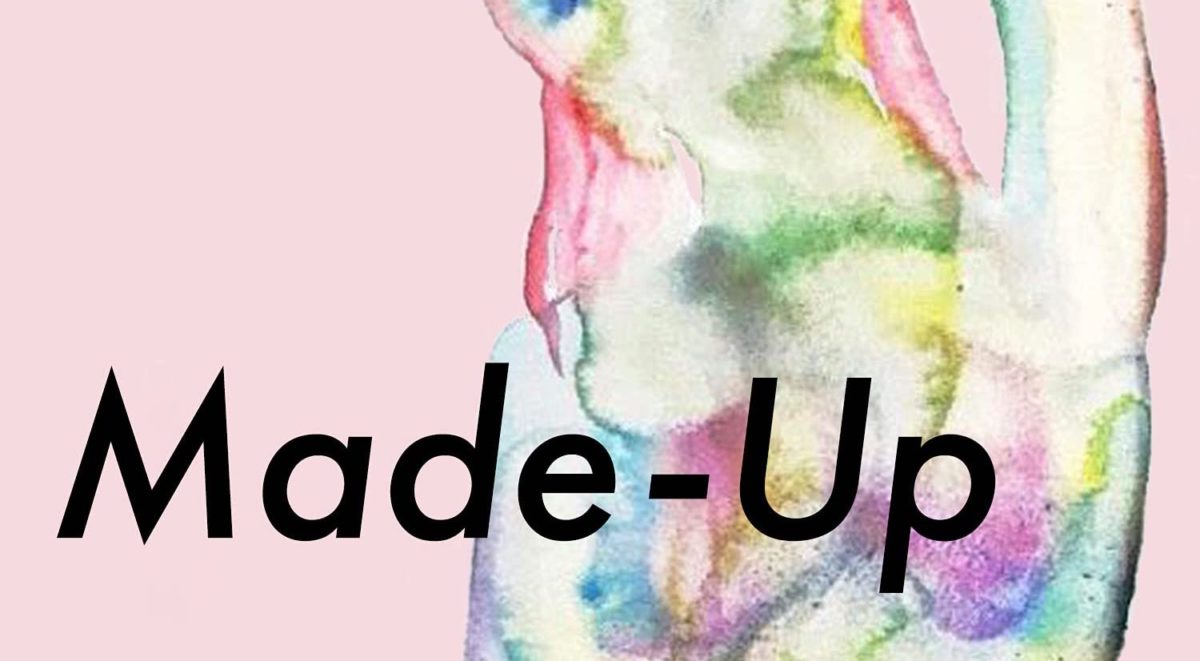
Made-Up: A True Story of Beauty Culture Under Late Capitalism
Daphné B.
Translated by Alex Manley
Coach House Books, 2021
Review by Alanna Why
When you think of make-up, do you think of a frivolous activity or a form of self-care? For Montréal-based writer and poet Daphné B., the answer is far more complex than this false binary.
Structured in a way that is reminiscent of creative nonfiction works by Maggie Nelson and Anne Boyer, Made-Up is a lyric essay that takes on YouTube beauty vloggers, feminism, and money. The prose is enchanting and smart, critical and poetic at the same time. Made-Up isn’t dismissive of makeup or femininity. Rather, it examines all of the contradictions involved in the pursuit of beauty, and how makeup is capable of telling multiple stories. As B. writes, “[W]ithin its layers it’s possible to discern the inherent paradoxes of the twenty-first century.”
One of these paradoxes pertains to YouTube beauty gurus, vloggers who share product recommendations as if they’re talking with a close friend, while simultaneously profiting off their audience through views and product lines. B. is particularly interested in controversial YouTubers Jeffree Star and Shane Dawson. The pair, who both have histories of racist comments, collaborated to produce the Conspiracy eyeshadow palette—the creation of which was documented in an hours-long series of YouTube videos in 2019. Despite disliking both Star and Dawson, B. couldn’t help but watch each episode. Personally, neither could I.
Made-Up takes on B.’s relationship to other controversial YouTubers, including Tati Westbrook, Jaclyn Hill, and Kylie Jenner—all of whom have been involved in online scandals that ultimately led to increased views and mainstream press coverage. Despite these controversies, B. continued to watch their videos, noting that she liked them not only for their makeup advice, but because they were soothing. “Sometimes to feel at peace, all you need is for someone to tell you what to buy,” she writes.
The most complex celebrity B. writes about is Grimes, the Canadian alternative musician. Unlike the YouTube vloggers with whom she has little connection beyond the screen, B. once knew Grimes in real life; a decade ago, they went to the same university and ran in the same arts scene in Montréal. B. is taken with Grimes, particularly for her romantic involvement with Tesla CEO Elon Musk—their relationship directly echoes Anne Boyer’s writing about “the anarchist pop star [who] had a baby with the son of a billionaire,” a quote which B. returns to several times.
The intersection of aesthetics, capitalism, and ethics is a contradiction which B. continuously works through in the text. “I’m a feminist, a poet, and a translator. I try to root out the forces of capitalism, sexism, racism, and colonialism that have taken refuge inside me…[but] even I myself am not immune to the forces that I decry,” she states. On one page she writes about how mica, a shiny mineral used to give iridescent makeup its signature sparkle, is mined in India using child labour. On another she writes about how she spent over $1,000 at Sephora in one year alone.
However, the solution to live by her morals doesn’t mean swearing off makeup entirely. For B., lipstick and hair dye are necessary amulets of self-preservation and joy—B. notes, for example, that women in prison across history used whatever items were available at their disposal as cosmetics. As she writes: “It’s easier for people to view makeup through a much narrower lens, though, because it feeds into the idea that those who wear it are fundamentally frivolous, absorbed in their own image yet determined to attract those around them.” B.’s mode of thinking goes against the notion that make-up is deceptive. Instead, self-adornment is not inherently vapid: it’s a practice as old as the history of humanity.
Made-Up is a text full of contradictions, just as any person is. Despite the late capitalist nightmare we find ourselves in, the human search for happiness never ends. Even if that joy is only available or accessible in the form of dolling oneself up, B. argues that it is still a worthwhile pursuit. At the end of the book, B. compares the relationship between makeup and the self to poetry: “It’s a text composed of unspoken words, a sort of embodied prose…Through colour, the body speaks; it invites the other to read it. When I put on makeup, I’m telling the story of myself again and again.”
Alanna Why is a Montreal-based culture and fiction writer. Her culture writing has appeared in Xtra, In The Mood and The /t3mz/ Review. She writes a biweekly newsletter about contemporary literature called Why’s World. Alanna is currently working on Bridge Burner, a novel about a Canadian one-hit-wonder from the ‘90s.